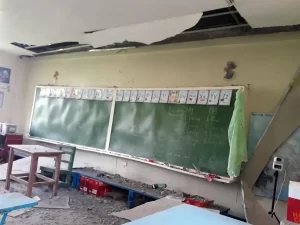
THE Supreme Court (SC) issued a ruling on Friday, July 25, 2025, halting the ongoing impeachment proceedings against Vice President Sara Duterte.
While the court dismissed the current impeachment complaints, it did not preclude the possibility of refiling similar charges in the future, specifically mentioning a potential refiling in February 2026.
The decision, announced following a special en banc session primarily focused on the Shariah Bar, was based on due process concerns, according to Supreme Court spokesperson Camille Ting. The ruling leaves open the possibility of future legal challenges to the Vice President.
The SC’s decision to halt the current impeachment proceedings does not represent a definitive judgment on the merits of the complaints themselves.
Instead, the court’s focus appears to have been on procedural aspects, ensuring that due process rights are upheld. The specific grounds for the decision remain to be fully detailed, but the mention of a potential refiling date suggests that the court may have identified procedural deficiencies in the current filing that could be addressed in a future attempt.
The timing of a potential refiling, in February 2026, implies a specific timeframe for rectifying any identified procedural flaws.
The Supreme Court’s ruling creates a significant development in the ongoing political landscape. While the current impeachment effort has been stalled, the possibility of refiling the charges leaves the issue unresolved and potentially subject to renewed legal battles in the future.
The decision highlights the complexities of impeachment proceedings and the importance of adhering to strict legal procedures. The specific details of the SC’s reasoning and the nature of the identified procedural issues are expected to be clarified in the coming days as the full decision is released. The ruling is likely to have far-reaching implications for the political climate and the ongoing debate surrounding the Vice President.



